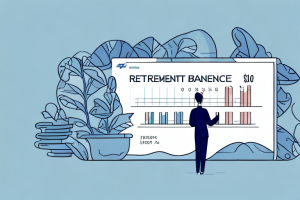Retirement planning is a complex and multifaceted process that presents numerous challenges. From financial considerations to healthcare costs, there are various factors that can impact an individual’s ability to enjoy a comfortable retirement. In this article, we will explore the key challenges faced by individuals as they plan for their retirement years and discuss strategies to overcome them.
Understanding the current retirement landscape
One of the primary challenges of retirement planning is understanding the current retirement landscape. With changing economic conditions, evolving work patterns, and demographic shifts, it is crucial to have a comprehensive grasp of the factors that can influence one’s retirement journey.
Factors such as increasing life expectancies, decreasing pension availability, and the uncertainty surrounding Social Security benefits necessitate careful consideration and strategic planning. Staying informed about retirement trends and understanding how they may impact your individual circumstances is essential.
Another important factor to consider in the current retirement landscape is the rising cost of healthcare. As people are living longer, the need for healthcare services in retirement is increasing. This can have a significant impact on retirement savings and the overall financial plan. It is important to factor in potential healthcare expenses and explore options such as long-term care insurance to mitigate the financial burden.
Additionally, the gig economy and changing work patterns are reshaping the retirement landscape. Many individuals are opting for flexible work arrangements or starting their own businesses in retirement. This can provide additional income and fulfillment, but it also requires careful financial planning to ensure a sustainable retirement. Understanding the implications of gig work, self-employment taxes, and the potential impact on retirement savings is crucial for those considering non-traditional retirement paths.
The rising importance of retirement planning
Retirement planning is becoming increasingly important as individuals are living longer and the responsibility for funding retirement shifts more towards the individual. In the past, many employees relied on employer-sponsored pension plans to provide for their retirement income. However, the prevalence of such plans has declined significantly in recent years.
As a result, individuals are increasingly responsible for saving and investing on their own to fund their retirement years. This shift in responsibility highlights the necessity of robust retirement planning and underscores the importance of starting early and making informed financial decisions.
One of the key reasons for the decline in employer-sponsored pension plans is the shift towards defined contribution plans, such as 401(k) plans. Unlike traditional pension plans, which guarantee a specific retirement income based on years of service and salary, defined contribution plans rely on employees to contribute a portion of their salary and make investment decisions. This places the burden of investment risk on the individual, as the value of their retirement savings is subject to market fluctuations.
Another factor contributing to the rising importance of retirement planning is the increasing cost of healthcare. As individuals age, healthcare expenses tend to rise, and without proper planning, these costs can quickly deplete retirement savings. It is crucial for individuals to consider healthcare costs when creating a retirement plan and to explore options such as long-term care insurance to mitigate the financial impact of medical expenses in retirement.
Financial considerations in retirement
One of the most pressing challenges in retirement planning is ensuring a steady stream of income to meet ongoing expenses. A key consideration is evaluating how much money is required to sustain your desired lifestyle throughout retirement.
It is essential to assess your current financial situation, estimate your future expenses, and determine the best strategies for accumulating sufficient retirement savings. This involves careful budgeting, maximizing contributions to retirement accounts, and exploring investment options that align with your risk tolerance and financial goals.
In addition to saving and investing, managing debt plays a pivotal role in retirement planning. Reducing or eliminating high-interest debt can significantly improve your financial position, allowing you to allocate more income towards savings and investments.
Healthcare costs and retirement: A major challenge
One of the most daunting challenges of retirement planning is the rising cost of healthcare. As individuals age, healthcare expenses tend to increase, placing a considerable strain on retirement savings.
It is crucial to factor in potential healthcare costs and explore options such as Medicare coverage or supplemental insurance policies. Understanding the intricacies of healthcare planning and incorporating it into your retirement financial strategy is essential to ensure that unexpected medical expenses do not derail your plans.
Social Security and its impact on retirement
Social Security benefits play a significant role in many individuals’ retirement plans. It is important to have a thorough understanding of how Social Security works, including eligibility requirements, benefit calculations, and strategies for maximizing benefit amounts.
Strategically timing when to claim Social Security benefits can have a substantial impact on the overall retirement income. Factors such as life expectancy, other sources of income, and financial goals should all be considered when making this decision. Consulting with a financial advisor can help navigate the complexities of Social Security planning.
Retirement savings: How much is enough?
Determining how much is enough to save for retirement is a pivotal challenge. It requires striking a balance between enjoying your present lifestyle and making sacrifices for a secure future.
Various factors influence the amount needed for a comfortable retirement, including desired lifestyle, life expectancy, inflation, and investment returns. Calculating an accurate estimate can be complex, but tools such as retirement calculators and expert advice can help gauge the necessary savings amount.
The role of investments in securing a comfortable retirement
Investments play a crucial role in securing a comfortable retirement. Building a diversified investment portfolio can help grow and protect your retirement savings.
Understanding different investment vehicles, such as stocks, bonds, mutual funds, and real estate, is essential for making informed decisions based on risk tolerance and financial goals. Regularly reviewing and rebalancing your portfolio can mitigate risk and align with your changing retirement objectives.
Balancing short-term needs with long-term goals in retirement planning
A significant challenge in retirement planning is finding the right balance between meeting short-term financial needs and ensuring long-term financial security.
While it is important to enjoy life and fulfill immediate goals, it is equally crucial to consider the long-term implications of financial decisions. Striking a balance between spending and saving can help maintain financial stability throughout retirement.
Financial planning tools, budgeting strategies, and financial advisors can provide guidance on effectively balancing short-term needs with long-term goals.
Navigating the complexities of pension plans and 401(k)s
Pension plans and 401(k)s are integral components of retirement planning for many individuals. Understanding the intricacies of these retirement savings vehicles can present a significant challenge.
From eligibility requirements to contribution limits and investment options, navigating the complexities of pension plans and 401(k)s can be overwhelming. Seeking guidance from HR departments, retirement plan providers, or financial advisors is crucial to optimize these resources.
The impact of inflation on retirement savings
Inflation poses a significant challenge to retirement planning. Over time, the rising cost of goods and services erodes the purchasing power of money.
It is essential to consider inflation when estimating future expenses and savings goals. Additionally, investing in assets that can provide a hedge against inflation, such as stocks or real estate, can help protect the long-term value of your savings.
Demographic shifts and their effects on retirement challenges
The shifting demographics of society have notable implications for retirement planning. Longer life expectancies, changes in family structures, and evolving work patterns all impact the retirement landscape.
Adapting to these shifts requires a flexible approach to retirement planning. Considering potential outcomes and making adjustments as necessary can help mitigate the challenges associated with changing demographics.
The psychological aspects of transitioning into retirement
Retirement is not just a financial adjustment; it also poses psychological challenges. Transitioning from a structured work-life to a leisure-oriented retirement can be challenging for some individuals.
Psychological aspects such as finding purpose, maintaining social connections, and adjusting to a new routine should be considered in retirement planning. Engaging in hobbies, volunteering, or exploring post-retirement work options can aid in a smooth transition and enhance overall life satisfaction.
Exploring alternative sources of income during retirement
Another significant challenge is identifying alternative sources of income during retirement. Relying solely on savings and Social Security benefits may not be sufficient to meet financial needs.
Exploring options such as part-time work, rental income, or passive income streams from investments can supplement retirement income and alleviate financial stress. Tailoring these income sources to align with personal preferences and abilities is key.
Managing debt in preparation for retirement
Managing debt is as crucial in retirement planning as saving for the future. Carrying significant debt into retirement can strain financial resources and limit flexibility.
Developing a plan to pay off high-interest debt before retirement can be beneficial. Minimizing debt liabilities reduces financial obligations and allows retirees to allocate more income towards retirement savings and enjoying their golden years.
Unexpected life events and their impact on retirement plans
Life is unpredictable, and unexpected events can significantly impact retirement plans. Unforeseen circumstances such as health issues, job loss, or family emergencies can derail financial security.
Having contingency plans, emergency funds, and adequate insurance coverage are essential components of retirement planning. These measures provide a safety net in case of unexpected events, ensuring that retirement plans remain on track.
Longevity risk: Preparing for a longer retirement period
Increasing life expectancies pose a unique challenge for retirees – the risk of outliving their savings. With longer retirements, there is a greater need for sustained income over an extended period.
Adjusting retirement expectations and planning for a longer retirement period by estimating future expenses and accounting for increased healthcare needs is vital. Exploring options like annuities and long-term care insurance can also mitigate longevity risk.
Strategies for maximizing Social Security benefits in retirement
Maximizing Social Security benefits is a key concern for many retirees. Understanding how to optimize benefits through strategic claiming strategies can significantly impact retirement income.
Factors such as individual earnings history, marital status, and life expectancy come into play when deciding when to start claiming benefits. Consulting with a financial advisor or utilizing online tools and calculators can help tailor an optimal Social Security claiming strategy to suit individual circumstances.
Retirement lifestyle choices: Finding the right balance between expenses and enjoyment
Finding the right balance between expenses and enjoyment is a significant challenge in retirement planning. It is crucial to identify and prioritize the lifestyle choices that bring personal fulfillment and align with financial resources.
Creating a realistic retirement budget that allows for both routine expenses and leisure activities can provide a framework for decision-making. Regularly reviewing and adjusting the budget can help strike a balance between financial security and enjoying the retirement years to their fullest.
The growing trend of phased retirement and its benefits
Phased retirement, the gradual transition from full-time work to full retirement, is gaining popularity. This approach offers various benefits, including the opportunity for continued income, a smoother adjustment to retirement, and the ability to maintain social connections.
Exploring phased retirement options, such as reduced hours or consulting work, allows individuals to gradually adapt to retirement while still feeling productive. Assessing personal financial needs and objectives can help determine if phased retirement aligns with one’s retirement plans.
Retirement planning is a complex undertaking, and the challenges associated with it should not be underestimated. Understanding the current retirement landscape, considering financial and healthcare costs, and navigating the intricacies of retirement savings and investments are all critical aspects of the planning process.
By addressing these challenges head-on and seeking expert guidance when needed, individuals can enhance their chances of achieving a secure and fulfilling retirement.
Remember, these subheadings are just suggestions and can be modified or expanded upon to fit the article’s content and structure better.



